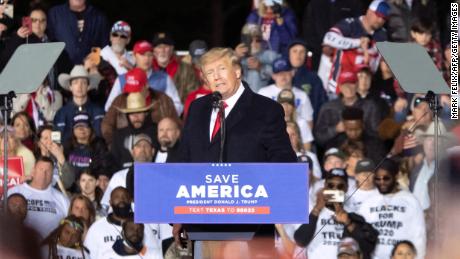During his trip to New York City on Thursday, Biden met with Mayor Eric Adams and spoke about the need to curb gun violence. At a moment when Adams is dealing with a series of high-profile crimes in the city, the Biden administration is acknowledging the problem and taking steps to show it can be tough on crime. This visit also appears to be an attempt to push back against progressives who are calling to “defund the police,” and neutralize any GOP attacks on Democrats for being soft on crime.
The issue of rising crime has gained even more attention after two NYPD officers, Jason Rivera and Wilbert Mora, were shot and killed while responding to a domestic disturbance call last month. As a result, Alvin Bragg, the new Manhattan district attorney, has come under political fire for issuing a memo promoting, among other things, alternatives to incarceration — a stance he has partly walked back and since tried to clarify.
It didn’t help that actor Susan Sarandon shared a Twitter post on Thursday comparing the thousands of officers who attended Rivera’s funeral to fascists, adding, “So, if all these cops weren’t needed for CRIME that day, doesn’t that mean they aren’t needed ANY day?”
Sarandon’s post, and the understandable backlash that followed, highlighted the tension around policing in stark terms. But supporting criminal justice reform doesn’t mean supporting lawlessness — and Biden would be making a mistake if he acted out of political expedience and tried to take on crime without addressing the problem of racism.
The #BlackLivesMatter movement put forth a powerful critique of racism in policing and the criminal justice system that is firmly rooted in decades of social scientific research. The kinds of bias that resulted in the tragic death of George Floyd in 2020 have always had a powerful hold on how policing is carried out in this country.
In his own policies, Adams, a former police officer, has tried to take a more nuanced approach to crime than some of his critics suggest. Despite being a staunch supporter of the police department and supporting controversial measures such as stop-and-frisk, Adams has often recounted his own experience of being beaten by the police as a teenager. For many years, Adams advocated for reforms to protect communities subject to police harassment and spoke out against the targeting of Black and Hispanic New Yorkers for low-level offenses.
While many Democrats tagged as “tough on crime” do support substantial reforms to address racism, it should be noted that the basic premise of the #BlackLivesMatter movement can’t be ignored. The need to rethink some of the fundamental ways in which policing works and the underlying structure of sentencing guidelines that are affected by racial bias must remain at the top of Biden’s agenda.
It could be that taking steps to reform the police is not the popular thing to do. But a central part of wielding presidential power is using it to pursue policies that are morally just. According to biographer Robert Caro, when President Lyndon Johnson faced advisers who urged him to be practical and avoid long-shot challenges, he responded by saying, “Well, what the hell’s the presidency for?”
Indeed, when LBJ moved forward with the Civil Rights Act of 1964, which banned legal segregation in public accommodations and employment discrimination, the President accepted it was a huge political risk. But he responded to a grassroots movement that was shaking the conscience of the nation and acted knowing full well that he could lose the South, which was the base of the Democratic Party.
Today, nearly 10 years since Trayvon Martin was killed, the nation is in great danger of moving on. Since that horrendous incident in 2012, the #BlackLivesMatter movement has made great strides in pushing the nation to confront the ways in which institutional racism plays out in our criminal justice system — a problem that generations of civil rights activists tried to shine a light on without much success.
Indeed, even when Johnson set up the Kerner Commission, which released its report in February 1968 highlighting how “white racism” in policing had been the reason so many cities went up in flames during the summer of 1967, the government didn’t do much. Rather than addressing the issue, the country voted for Richard Nixon, who championed “law and order” in the 1968 presidential campaign.
We could see a similar pattern play out today. More moderate Democrats have already blamed progressives for alienating voters and allowing Republicans to make inroads in the 2020 elections.
But now is not the time to make the same mistake the government did in 1968. Institutional racism in the criminal justice system is a major national crisis that continues to leave Black Americans and other marginalized groups in grave danger just for walking the streets. It also leaves too many young people without the resources they need for a fair trial and locked up in correctional facilities that have grown significantly over the past few decades.
A President who tries to game out exactly what policy positions will win the elusive moderate vote in our era of polarization is taking on a fool’s errand. One thing that Biden can do, however, is take a genuine stand and promote policies that address racism in policing, sentencing and prisons because it is the right thing to do.






